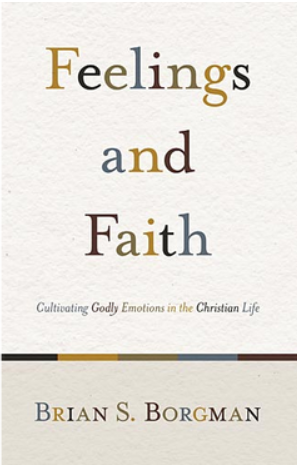A First Look at Brian Borgman’s Feelings and Faith

How do I handle emotions of discouragement and despair? Is there a way that truth can affect emotions and emotions affect thinking? Can incorrect thinking bring emotional harm, just as sinful emotions can skew our thinking? (Brian S. Borgman, Feelings and Faith, 2009, p. 11).
In my post two days ago, I mentioned a plan about organizing a book reading program and fellowship in our school based on Brian Borgman’s book, Feelings and Faith. However, before starting this reading project, I want to check first if the book indeed is worthy of our time. As such, I have to digest it first before introducing it to the students.
In this post, I would like to cover the first eleven pages of the book, and that would mean mentioning the endorsements of other book authors and the highlights of the foreword.
Surveying the book, my first impression is that the author explores the place of emotions in the context of faith and Christian theology. Following the Puritans, he wants to revisit the idea of “holy emotions” that are first found in God and then reflected in us as His image. I think the book is timely in an age that doesn’t know how to regulate emotion and our tendency towards excess. Bruce and Jodi Ware identified them as the rationalists and the emotionalists.
I am not sure if it is fair to describe the emotionalists as people who put emotion on a high pedestal. It is as if they worship it and follow its dictates. Those who allowed their emotions to rule their lives ended up destroying their lives and blaming other people but themselves. We see these among people who don’t care about what is right and wrong and what others will say. The only thing that matters to them is their search for happiness. They see no use in living a straight life and yet are unhappy, boring, and miserable. They look for a way out with a person that excites them, even if this would mean entering what their conscience tells us is “forbidden.”
On the other hand, the rationalists take emotion for granted and choose a way of life that avoids drama. They are done with it. Watching TikTok, you will see a lot of short videos created by both men and women speaking out loud, exposing the dangers of following one’s emotions. They see emotion as merely chaotic, reckless, wild, and violent.
Living without emotion is not human. Emotion is indispensable to living a meaningful life. As the writers of the foreword describe it:
You can’t live with them, and you can’t live without them.
If both the emotionalists and rationalists are excesses, what shall we do? How shall we deal then with our emotions in a way that they will bring us no harm?
I think answering this question is Brian Borgman’s goal. I hope to find the answer as I continue reading the book. Notable Christian authors and teachers commend this book for its unique approach to theology and emotions, uniting theology and experience, and addressing an often misunderstood topic even among Christians. They see the book as invaluable for personal study, marriages, and reading groups.
Grace and peace!
Posted Using INLEO

i am interested to see how this book will answer this question
"How shall we deal then with our emotions in a way that they will bring us no harm?"
because without the rational part and only emotions, we are like animals, but without emotions and only rationalism, we are robots
An accurate description.
Congratulations @rzc24-nftbbg! You have completed the following achievement on the Hive blockchain And have been rewarded with New badge(s)
Your next target is to reach 71000 upvotes.
You can view your badges on your board and compare yourself to others in the Ranking
If you no longer want to receive notifications, reply to this comment with the word
STOPThank you! I wonder how long will it take for me to achieve that additional 1,000. 😆
You're welcome @rzc24-nftbbg! It depends on your activity level, but if you've already reached 70k upvotes, you're doing something right. 👍
BTW, your support for our previous proposal has been much appreciated but it expired!
May we ask you to renew your support for our NEW proposal: https://peakd.com/proposals/331 ?
Your help will be much appreciated. Thank you!
View more